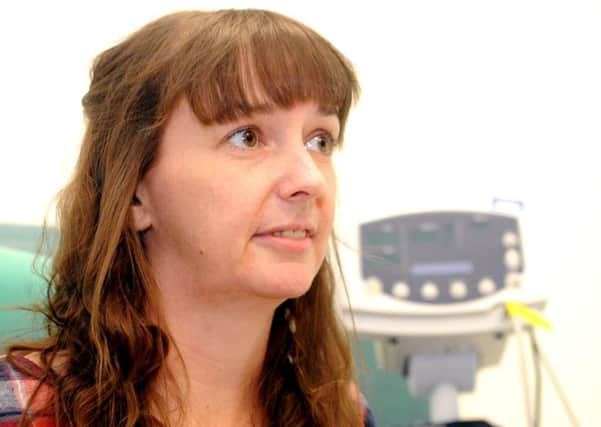Pauline Cafferkey, Scots Ebola nurse, airlifted to London


An RAF Hercules aircraft landed in Glasgow this afternoon to airlift Ms Cafferkey to the Royal Free Hospital in London.
She was originally infected while working in Sierra Leone in December 2014 and spent almost a month in an isolation unit at the London hospital.
Advertisement
Hide AdAdvertisement
Hide AdShe was released after making a recovery but fell ill again in October last year and was again treated at the Royal Free for meningitis caused by Ebola.
At one point the Scottish nurse was described as “critically ill” but was discharged in November and transferred to Glasgow’s Queen Elizabeth University Hospital to continue her recovery and later returned home.
An NHS Greater Glasgow and Clyde spokesman said: “Under routine monitoring by the Infectious Diseases Unit, Pauline Cafferkey has been admitted to hospital for further investigations.”
In November, the Royal Free said Ms Cafferkey had made a full recovery from Ebola and was no longer infectious.
• READ MORE: Queen holds lunch for nurse Pauline Cafferkey
She contracted the deadly virus while working as a nurse at the Save the Children treatment centre in Kerry Town, Sierra Leone.
Ms Cafferkey, from South Lanarkshire, was diagnosed after returning to Glasgow from the west African country via London.
At the time of her re-admission last year, Dr Michael Jacobs, from the Royal Free, described the situation as “unprecedented”, while the World Health Organisation (WHO) said Ms Cafferkey was the only known Ebola survivor to develop meningitis months later.
Dr Jacobs, infectious diseases consultant at the hospital, told a press conference in October: “This is the original Ebola virus she had many months ago which has been inside the brain, replicating at a very low level, and has now re-emerged to cause this clinical illness of meningitis.
“This is an unprecedented situation.”
Advertisement
Hide AdAdvertisement
Hide AdThe WHO declared the Ebola outbreak over last year after the deaths of thousands of people but two new cases emerged in Sierra Leone in January.
The organisation called for a “critical period of heightened vigilance”.
When Ms Cafferkey was released from hospital for the second time, she said: “I am forever thankful for the amazing care I have received at the Royal Free Hospital.
“For a second time, staff across many departments of the hospital have worked incredibly hard to help me recover and I will always be grateful to them and the NHS.”